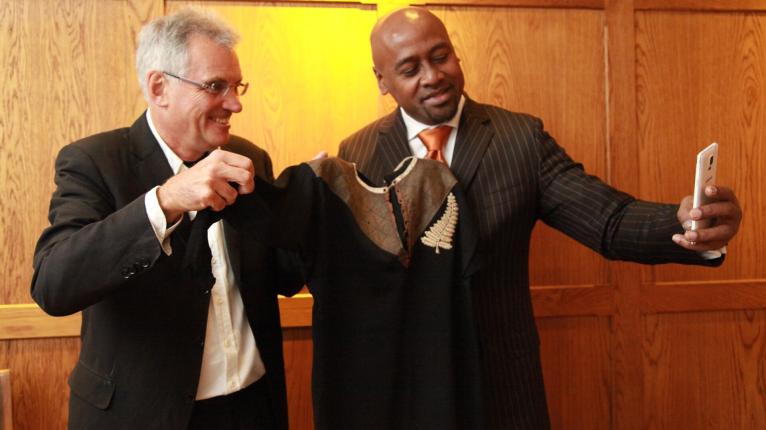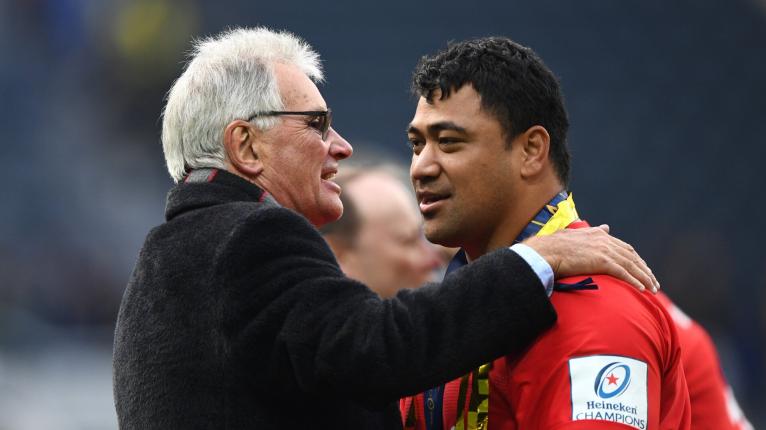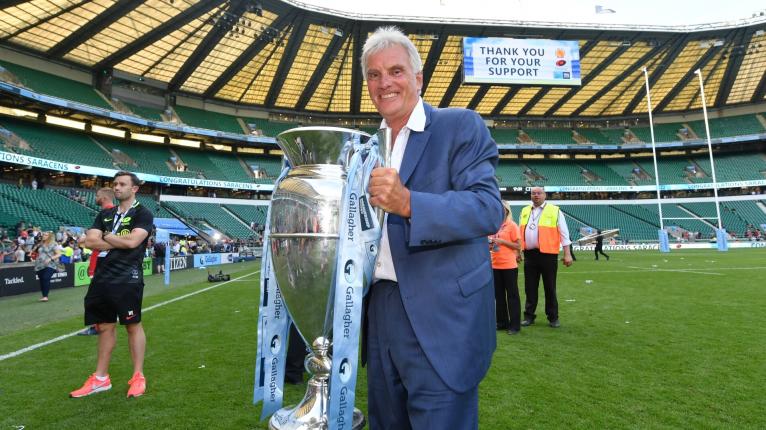In defence of Nigel Wray

In a guest opinion piece, Jonathan Beardmore of the Egg Chasers Podcast comes to the defence of Saracens chairman Nigel Wray.
Nigel Wray is not just an important rugby man, but a great one.
For a quarter of a century he has been at the heart of Saracens, an organisation that has mounted the summits of both domestic and European rugby.
However, one suspects he might not be remembered for these achievements.
Wray brought the world’s biggest names to the English game, men like the colossal French captain Abdel Benazzi and World Cup heroes like Francois Pienaar and Tim Horan.
Saracens, the club he built into the professional era, has developed some of England rugby’s brightest and best. Despite this, Wray’s legacy might end as being regarded as the English game’s biggest cheat.
Earlier this week Premier Rugby handed down an unprecedented 35 point reduction alongside a fine totalling over £5million – one of the biggest fines in the history of British sports.
No doubt this fine, along with most financial burdens Saracens encounter, will be shouldered by Wray. As hard as people have tried, professional rugby clubs just don’t make money and Saracens are no different. The irony is, it is the actions of people like Wray that have contributed to professional rugby being seen by many as unsustainable.
Saracens’ biggest worry should not be point deductions or fines but the prospect of their owner and chief benefactor walking away.

The crime, as has now been well-documented, was Wray co-investing with senior players into limited companies. A process that is perfectly legal but also in direct contravention of the more than 50 pages of the salary cap agreement Saracens sign up to every year.
For those baying for more blood, you might just get what you wish for as legal action from other clubs seems to be in the offing.
But once the dust has settled there may be a way back for Wray. Johan Ackermann, the outstanding Gloucester head coach, was banned for using steroids as a player. He is completely open about his mistake and a shining example of how to make good on past mistakes. Also what of the man at the helm of rugby’s last great scandal, Bloodgate, Dean Richards? Bloodgate rocked rugby to its core yet only 18 months ago Richards was one of the most lauded Directors of Rugby in the land.

Rugby is a harsh, demanding and brutal sport but it is also very forgiving at times. The road to redemption is long and painful but it is available for those willing to take it. A useful start would be to contextualize Wray’s alleged crimes. In its most severe guise Wray has cheated his way to the top, robbed others from life-changing victories, revelled in stolen valour and most importantly compromised the integrity of the game he so clearly loves. On the other hand, this form of cheating is somehow less offensive than the only comparable scandal, Bloodgate.
What happened at Harlequins was blunt and blatant. It required the type of callousness one would need to steal another’s life savings. It was the product of rotten values.
That’s not to say Wray’s cheating has no losers. Exeter Chiefs will tell you exactly the cost. Wray’s actions have consequences that are hard to comprehend. Bloodgate failed to influence a single game but Wray may have manipulated almost half a decade of domestic rugby. There are hidden costs to this behaviour like player wage inflation. Rival clubs offered good deals to players, only to have them bafflingly rebuffed and go to Saracens for less money. In order to keep key squad members, eye-watering deals had to be tabled and tough decisions had to be made, a point starkly made by a number of Harlequins this week.

For all the wrongdoing, you could not point the finger of self-enrichment at Wray. He has never got rich from rugby, indeed, been part of rugby has cost him a small fortune, its cost many owners a small fortune. Wray’s crime was a crime of passion, a man wrapped up in an organisation. He spent substantial sums of his children’s inheritance propping up not only a rugby club but local schools, charities and, yes, helping his players, as he would see it, set up in the world of business.
Why Wray thought this might be a good idea only he knows. Frankly, most of what Saracens have built would still be in existence – the academy, the coaching, a new stadium, a league-leading community programme and yes, outstanding player welfare.

The biggest tragedy is 99 per cent of his achievements could have been met without breaking any cap.
How should rugby react? The complex answer is that sadly even good people do bad things. Saracens should pay the fine and accept the points deduction but Rugby as a sport needs to behave proportionally. Gloucester’s gesture of stopping the sale of Wolfpack lager this weekend is a bell-weather for how strongly fans feel. Wolfpack is one company set up by ex-Saracen captain Ali Hargreaves and Winger Chris Whyles and is a premium example of players transitioning from the game into the real world using exactly the entrepreneurial spirit Saracens and Wray wish to encourage. Chris Whyles was a USA international who made it the hard way, signing from Nottingham Rugby Club. Ali Hargreaves retired after suffering multiple concussions playing the sport we love. Is it these guys we wish to make an example of?
In a similar vein Saracens attracted lots of new eyeballs to the game, many of whom where children encouraged to the games via generous offers to local schools (probably at the expense of Wray). They will be feeling as let down anyone so make sure they feel welcome when they come to Sandy Park or Kingston Park. If I know rugby, I have a feeling the after a good deal of mocking and yes “bantz” the good folk up and down the Premiership will do just that.
“We accept the hate we are going to get, but we think it is misplaced and misguided,” said the Saracens DoR.https://t.co/uFARLmsL6g
— RugbyPass (@RugbyPass) November 9, 2019
I am strongly in favour of a salary cap. I am of the harsh sporting sanctions bought down on Saracens, yet somehow I can’t get as outraged as I know I should be. The accusation of Wary giving away some of his wealth so that the great players of this generation can get a little bit more financial security just does not make my blood boil.
Let’s not abandon our principles in search of punitive punishment. Even good men do bad things and for all his sins, Nigel Wray remains a great rugby man.























































